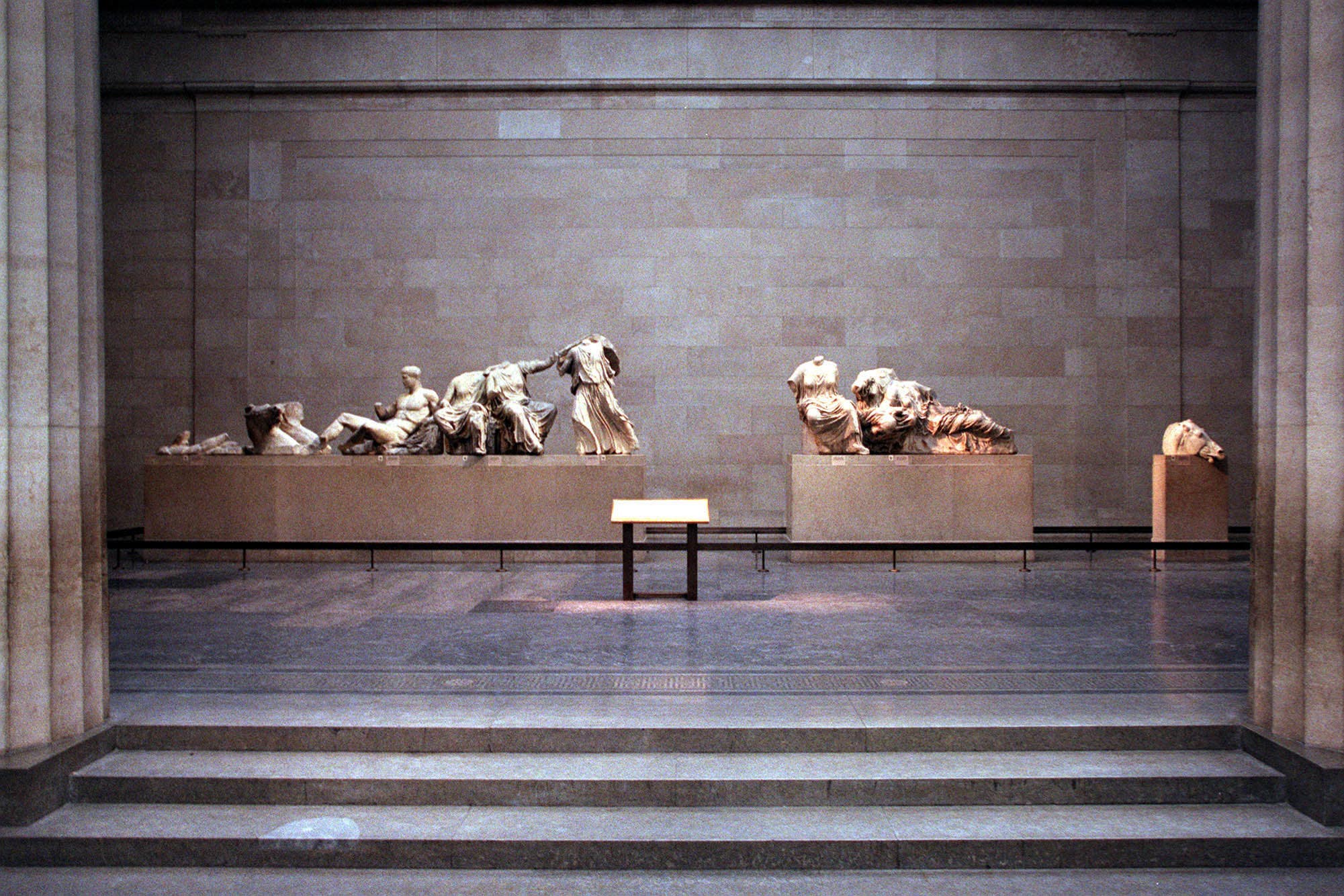We want win-win solution on Elgin Marbles, says Greek prime minister
Greece has been campaigning for decades for the return of the Parthenon Sculptures

The prime minister of Greece has said his government is exploring a “win-win” solution to one of the world’s most intractable cultural heritage disputes – the fate of the Elgin Marbles in the British Museum.
However, Kyriakos Mitsotakis has also ruled out any deal that would include the word “loan”. The PM said: “We will never recognise that these sculptures are owned, legally owned by the British Museum... But again, we have to be constructive and we have to be innovative if a solution is to be found.”
Mr Mitsotakis’s government has been in talks over the ancient sculptures, which form a key part of the British Museum’s collection.
In February, the museum’s chair said the talks had been “constructive” and that the UK and Greece were working on a deal that would have the sculptures displayed in both London and Athens.
Mr Mitsotakis said: “I wouldn’t like to comment publicly on the discussions that we’ve had. I would just say that we are, without changing ... our fundamental position about the ownership of the sculptures, we’re trying to explore a possible win-win proposition that would work for both sides.”
Asked whether Greece might consider seeing the sculptures returned as a loan, Mr Mitsotakis was unequivocal. “No, no,” he said. “That word ‘loan’ is not part of ... what I consider a win-win solution.”
Greece has been campaigning for decades for the return of the Parthenon Sculptures, which once adorned the Parthenon atop the Acropolis in Athens.
The 520ft frieze ran around the outer walls of the Parthenon, dedicated to Athena, goddess of wisdom. Carved between 447-432 BC, the frieze and other sculptures remained largely intact until the temple, which was being used by a Turkish garrison as a gunpowder store, was blown up during a siege in 1687.
Much was lost in the explosion, and about half the surviving works were removed by British diplomat Lord Elgin in the early 19th century, while Athens was still under the rule of the Ottoman Empire. They have been in the British Museum since 1816.
Greece claims they were illegally acquired during a period of foreign occupation. British officials have rebuffed repeated demands for their return.
Mr Mitsotakis said that although the issue has been “parked” during the campaign leading up to Greece’s elections on 21 May, “should we get re-elected, I’m looking to pick up again the momentum and build upon the progress that we have made”.
Amid the global debate on the restitution of cultural artefacts, Greece has already reached two deals that have seen some 2,500-year-old marble fragments of the Parthenon Sculptures returned to Athens from European museums. In January, the Vatican Museums returned three small parts of the sculptures in a “donation” from Pope Francis, while another arrived in Athens on loan from a museum in Palermo, Sicily.
Associated Press
Subscribe to Independent Premium to bookmark this article
Want to bookmark your favourite articles and stories to read or reference later? Start your Independent Premium subscription today.

Join our commenting forum
Join thought-provoking conversations, follow other Independent readers and see their replies